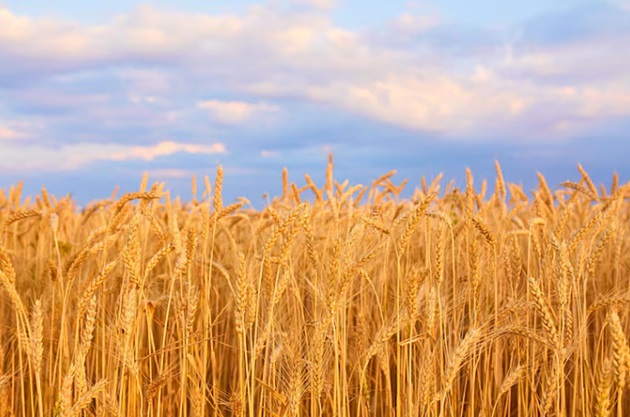817

The members of the Alliance for Agriculture and Cooperation have sent an open letter to the President of Romania, Klaus Iohannis, as well as to the presidents of parliamentary parties, urgently requesting support measures for farmers. Below is the full text of the document sent to the infoFERMA editorial office:
"Given the severe situation in which Romanian farmers find themselves, with the risk that at least 35% of them will go bankrupt this year due to the exorbitant rise in agricultural input prices, the collapse of agricultural product prices caused by the pressure of transit and import of agricultural products from Ukraine, coupled with the severe soil drought that has persisted for the past four years in many regions of the country,
Considering the past precedents when Romanian MEPs voted against the interests of Romanian farmers and cooperatives, we ask you to ensure that all MEPs representing Romania at the European level will act together with party leadership, national institutions, representations, and vote for:
Immediate 100% external convergence for Romanian farmers, so that Romanian farmers receive the equivalent of the EU subsidy average as promised at the time of EU accession. We remind you that this should have been implemented starting in 2014;
Increasing the post-2027 Common Agricultural Policy budget from the current 0.4% to 1% of the European Union's GDP, and for Ukraine, if necessary, to establish a separate and complementary fund to the EU Agriculture budget.
We request an increase in the Agriculture budget so that farmers can implement the constraints imposed on them by very stringent legislative measures, which result in a substantial increase in production costs and impact the prices for final consumers through the transit and import of agricultural products from third or accession countries to EU member states;
Acceptance and support of Ukraine's accession to the European Union only after it fulfills its obligations in all chapters, sectors, and respects the conditions imposed for EU member states, in terms of agricultural production and reciprocity conditions for imported products; The reality is that EU agricultural markets are heavily affected by the liberalization of trade with Ukraine.
The effort is currently inequitably distributed among EU citizens, with the agricultural sector bearing a disproportionate and unsustainable burden. We continue to support aid for Ukraine only if all necessary measures are taken to protect and not destroy Romanian and European farms and to respect the existing reciprocity conditions in the single market;
Ensuring fair trade that guarantees a certain degree of reciprocity in production standards is essential to prevent sustainability relocations, without undermining European production in strategic areas and ensuring transparency for consumers. If we face more cultivation restrictions and higher production standards due to the EU framework, we expect to be treated fairly on the international stage.
Amending European Regulations 783, 784, and 785/2018 to include the exception for the use of neonicotinoids in seed treatment for seeds used to establish crops in regions where natural exceedance of the Economic Damage Threshold (PED) for soil pests is recorded. The exception can be limited to a 10-year period, following the glyphosate model, during which the industry can find a substitute.
It is important for Romanian farmers to continue using the three neonicotinoid substances (imidacloprid, clothianidin, and thiamethoxam), which still have no substitutes with the same efficacy and economic efficiency. Studies and research conducted in recent years in Romania by authorized research institutions demonstrate that Romania is in a unique situation due to the extremely high level of pest proliferation in certain regions of the country, above the Economic Damage Threshold (PED), necessitating the application of neonicotinoid substances, which represent the only effective method of prevention and treatment against these pests.
Used responsibly, according to manufacturer recommendations, there is no negative impact on human health, animals, or soil biodiversity, considering that neonicotinoids are applied to seeds and not to growing plants, being absorbed and metabolized/consumed by plants until harvest time.
Any new initiative from the Commission, in accordance with better regulation principles, must include an impact study, including a section on:
1) its feasibility and necessity;
2) impact on production, land, and rural areas;
3) impact on generational renewal; and
4) an assessment of financial implications. In the period 2019-2024, policies related to agriculture and forestry under the Green Deal have not been subject to any comprehensive cumulative impact study on farms or feasibility studies considering potential bottlenecks.
At the start of the next mandate, we ask the newly elected Commission to conduct a comprehensive impact assessment of agricultural policies under the Green Deal, while also evaluating their financial implications. This study and its conclusions must be a prerequisite for any subsequent agricultural initiative to avoid continuing to navigate blindly and to ensure policy coherence, while supporting the CAP objectives.
A strong Commissioner for Agriculture and Rural Areas with a key role as Vice President of the European Commission is needed.
In terms of the operations of European institutions, the Green Deal for agriculture has been a regulatory tsunami, with rushed consultations and fast-tracked proposals. We ask that the 2024-2029 mandate propose fewer, better-quality regulations, allowing sufficient time for public consultation and feedback for impact assessment, especially within the Commission.
The new legislature must be the one that provides farmers and agricultural cooperatives with the necessary tools to ensure food and energy security in the EU and to transition to sustainable food systems.
Attached to this letter, we also send the COPA COGECA Manifesto, to which we have contributed, for "REPOSITIONING AGRICULTURE AS A STRATEGIC EUROPEAN RESOURCE," which we ask you to analyze and support its points.
Otherwise, we will publicly sanction the deviations of individuals/parties that do not consider the interests of the domestic agri-food sector and Romania, including by resuming protests in Romania and other member states massively whenever necessary.
Alliance for Agriculture and Cooperation,
PRO AGRO Ionel ARION
LAPAR Nicolae VASILE
UNCSV Mircea BĂLUȚĂ




